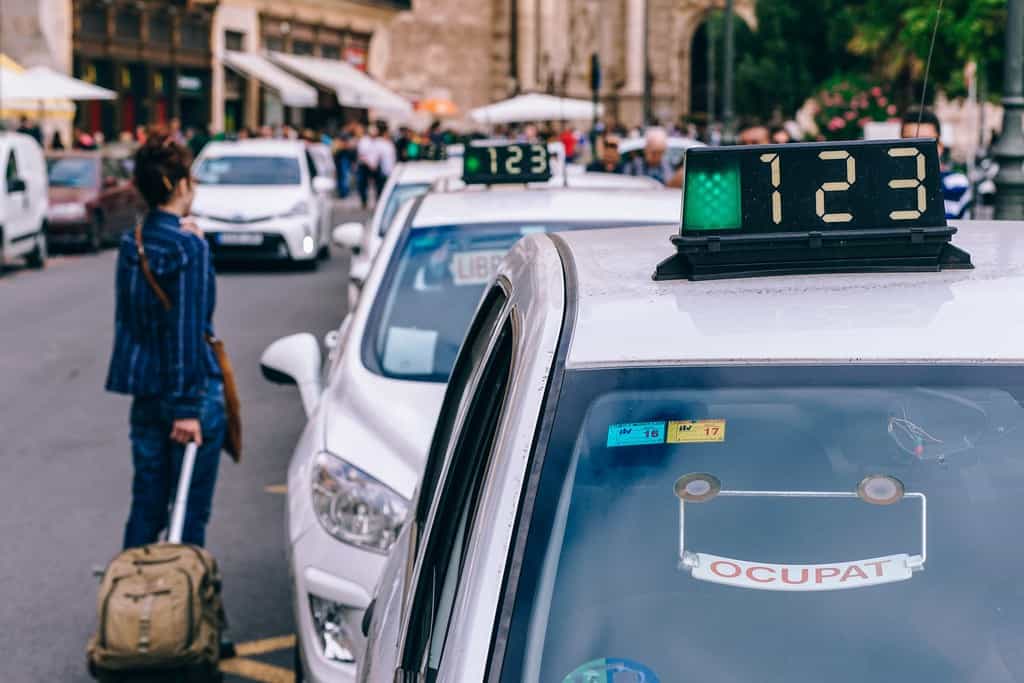Last Updated on September 27, 2023
Visualize a scenario whereby your wanderlust spirit has landed you in a remote area in Africa or Indonesia! The scenery is beautiful, the locals are friendly, and the entire ambiance is charming. Every day, you must venture out of your hotel to explore this magical countryside. But there’s one problem – your English-speaking tour guides aren’t always there to accompany you.
Even knowing basic greetings in English may not always be sufficient as you venture out to explore this enchanting countryside.
One day, as you leisurely stroll the village, you wind up in the middle of nowhere. It could be in a busy marketplace, by the river banks, or at the edge of a dense forest. You’ve literally lost your way. Fortunately for you, you remembered to carry a picture of your lodge facility. Now, the only thing to do is grab someone’s attention, show them the picture, and hope that they’ll lead you to the hotel. That’s when you’ll realize how invaluable it is to know how to say “hello” in a foreign language.

Now, stop imagining and realize that this is a reality most tourists go through every single day. So, as you plan for your next trip, you should do yourself a favor and learn to say hello in the local languages.
Here’s how to say “hello” in some of the world’s most popular languages.
- Afrikaans – Formal: Goeie dag (gwee eh dahg) and informal: Hallo (hah low)
- Albanian – Tungjatjeta
- Arabic – Formal: Asalaam alaikum (ah salam u alay koom) and informal: Ahlan (ah lahn)
- Armenian – Formal: Barev dzez (ba rev d-zez) and informal: Barev (ba rev)
- Basque – Formal: Kaixo (ki show) and informal: Epa (eh pah)
- Belarusian – Vitaju (vee-TAH-you)
- Bosnian – Selam
- Bulgarian – Zdraveite or zdrasti
- Chamorro – Hafa adai
- Chichewa – Moni bambo! (to a male) and moni mayi! (to a female)
- Congo – Mambo
- Croatian – Morning hours: dobro jutro / Daytime: Dobar dan
- Czech – Morning hours: Dobré ráno (doe bray rah no) / Daytime hours: Dobrý den (do bree den)
- Danish – Formal: Hej (hi) and informal: Halløj (halloy)
- Dutch – Formal: Hallo (hah low) and informal: Hoi (hoy)
- Dzongkha – Kuzu-zangpo (koo-zoo-zang-poh)
- English – Formal: hello and informal: hi
- Esperanto – Saluton
- Estonian – Tere (TEHR-reh)
- Farsi – Formal: Do’rud (doh rood) and informal: Salâm (salaam)
- Fijian – Formal Ni sa bula (nee sah boo-lah) and informal: Bula (boo-lah)
- Filipino (Tagalog) – Formal: Mabuhay (mah boo hi) and informal: Kamusta (cahm usta)
- Finnish – Formal: hyvää päivää and informal: moi or hei
- French –Daytime hours: Bonjour (boh zhoor) / Evening hours: Bonsoir (boh swahr) and informal for both: Salut (sa-loo)
- Gaeilge – Dia dhuit
- Georgian – Gamardjoba
- German – Formal: Guten Tag (goo ten tahg) and informal: Hallo or Hi
- Hausa – Sannu or Salama alaikum
- Hawaiian – Formal: Aloha (a low ha) and informal: Aloha
- Hebrew – Formal: Shalom (shuh lowm) and informal: Hay (hi)
- Hindi – Formal: Namaste (nah mah stay) and informal: He (hee)
- Hungarian – Formal: Jó napot (yo ah na put) and informal: Szia (see ya)
- Icelandic – Góðan dag
- Igbo – Nde-ewo
- Indonesian -Morning hours: Selamat pagi (suh lah mat pah gee) / Daytime hours: Selamat siang (suh lah mat see awng) / Afternoon hours: Selamat sore (suh lah mat sor ee) / Evening hours: Selamat malam (suh lah mat mah lahm) and informal for both: Halo (hah low)

Tourist Taxi 1 - Iñupiaq – Kiana
- Irish Gaelic – Formal: Dia duit (dee a gwit) and informal: Haigh (hay)
- Italian – Formal: Salve (sahl vay) and informal: Ciao (chow). Also, Morning hours: Buon giorno / Afternoon hours: Buon pomeriggio / Evening hours: Buona sera
- Javanese – Halo
- Kazakh – Formal: sälemetsiz be (sah-lem-met-siz beh) or informal sälem (sah-lem))
- Kinyarwanda – Formal: Muraho (moo-rah-hoh) and informal: bite (bee-teh)
- Korean – Formal: Annyeong haseyo (ahn yoong hah say yoh) and informal: Annyeong (ahn yoong)
- Kurdish – Merheba (mer-he-bah) or silav (see-lav)
- Kyrgyz – Formal: Salamatsyzby (sah-lam-aht-seez-bee) and informal salam (sah-lam)
- Lao – Sabai dii
- Latin – Salve
- Lingala – Mbote
- Lithuanian – Sveiki
- Luganda – Ki kati (kee kah-tee)
- Luxembourgish – Moïen
- Maithili – Pranam
- Malagasy – Manao ahoana (man-ow ah-ohn-ah), salama (sah-lAHm-ah), or akory (ah-kOO-ree) / miarahaba (mee-arah-hah-bah)
- Malay – Selamat petang
- Mongolian – Formal: Sain baina uu (saa-yen baya-nu) and informal: sain uu (say-noo)
- Nahuatl – Niltze
- Nevajo – Ya’at’eeh
- Norwegian – Morning hours: God morgen (gu morn) / Daytime hours: God dag (gu dahg) / Evening hours: God kveld (gu kuh veld) and informal for both: Hei (hi) Also acceptable include Hei, hallo, heisann, and halloisen
- Oromo – Akkam
- Palauan – Alii (ah-LEE)
- Portuguese – Formal: Olá (oh la) and informal: Oi (oy)
- Samoan – Talofa
- Scanian – Formal (go’da) and informal (hallå)
- Sinhala – A`yubowan (ar-yu-bo-wan)
- Slovak – Ahoj or Nazdar
- Slovenian – Morning hours: Dobro jutro / Afternoon: Dober dan
and informal for both: živjo (zhivyo) - Spanish – Formal: Hola (oh la) and informal: Qué tal (kay tahl)

- Sundanese – Halo
- Swahili – Formal: Habari (ha barr ee) or Hujambo (who jahm bow) and informal: sasa (sasa)
- Swedish – Formal: God dag (gu dahg) or informal: Hej (hey). Hallå is also acceptable.
- Tagalog – Formal (Kumusta) and informal) Musta
- Tahitian – Ia orna
- Taiwanese Hokkien – Lí-hó (lee-hoh)
- Thai – Formal when greeting a man: Sawatdee krup (suh wah tee crop) / When greeting a woman: Sawatdee ka (suh wah tee kah) / And informal when greeting a man: Watdee krap (wah tee crop) / When greeting a woman: Watdee ka (wah tee kah)
- Tibetan – Tashi delek (tah-shee del-ek)
- Tongan – Malo e leilei
- Tsonga – Avuxeni
- Tswana – Dumela (doo-meh-lah)
- Turkish – Formal: Merhaba (mar hah bah) and informal: Selam (seh lahm)
- Uyghur – Formal: Ässalamu läykum (aes-sah-lahm-oo lae-koom) and informal: Yahshimusiz (yah-shih-moo-sihz)
- Uzbek – Formal: Assalomu aleykum (ahs-sah-lo-moo ah-lay-koom) and informal: salom (sah-lom)
- Welsh –Formal: Helô (huh-low) and informal: S’mae (suh-may)
- Zulu – Formal: Sanibonani (sah-nee-boh-bah-nee) and informal: Sawubona (sah-woo-boh-nah)
Remember…
When saying hello in a foreign language, the emphasis shouldn’t be on the spelling but the pronunciation. The closer it is to the local dialects, the easier you’ll be understood.



